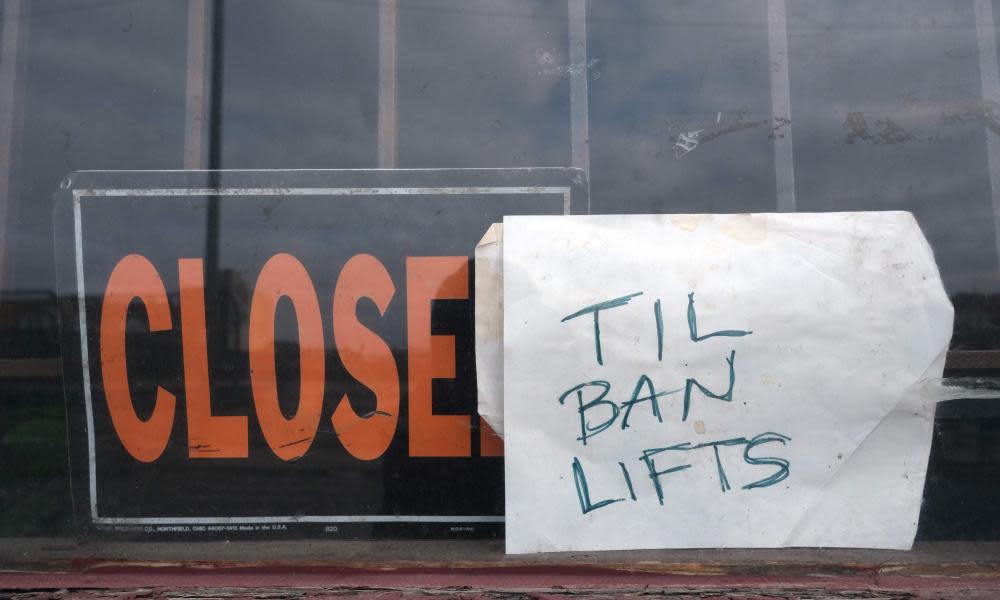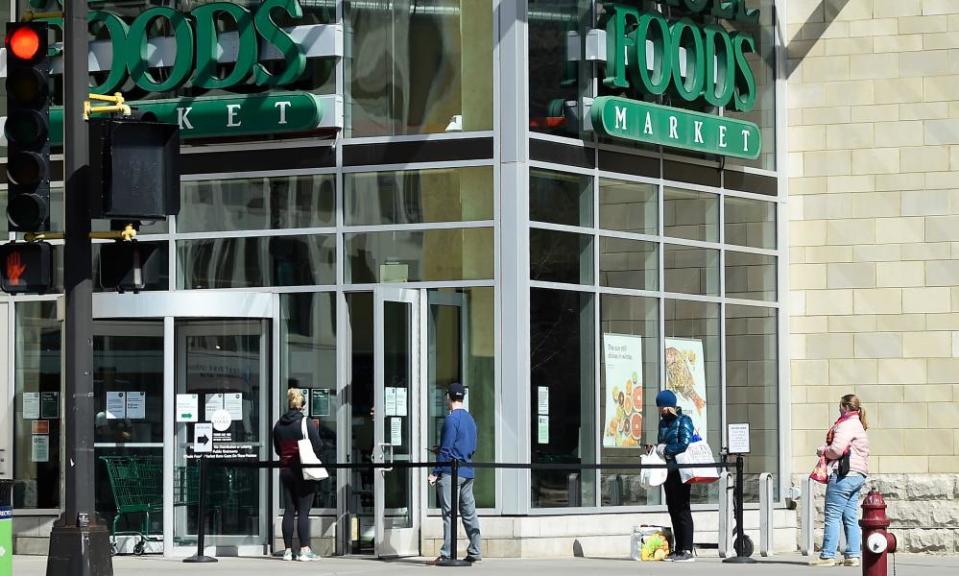Economic numbers don't matter right now. Government must help Americans get by

In the United States, 3.3 million workers filed for unemployment insurances last week – about five times more than in any previous week in history. Many more will follow soon. A disaster? No. It’s a sign that there is still a support system out there, however frail it may be. To break the epidemic, people need to be home, sheltering in place. Jobless benefits are one vital way to help them get by.
Gross domestic product will crash this quarter – also perhaps by more than ever before. The fall is a measure of the effectiveness of the lockdown. It is also a sign of the fragility of what was there before. It is not a catastrophe in itself.
The stock market jumped when the big bailout cleared the Senate. Investors cheered – but this was not a good thing. Those gains measure how much the paper losses of the wealthy are being repaired. That’s an excess benefit and a temporary one; it will prompt many caught out in the first wave of losses to dump their stocks. They know that some of the industries hit early and hardest – among them airlines and aerospace, hotels and leisure – will not return in their present form. It’s not just that travel restrictions will endure. It’s not just that people won’t have the money. It’s that even if they do, ordinary customers won’t soon resume old traveling habits while the danger appears to lurk.
Related: The economy v our lives? It's a false choice – and a deeply stupid one
Deficits are about to go through the roof: with spending soaring and taxes collapsing, they could rise to 20% of GDP this year or even more – more than in the vast mobilization of the second world war. But this is a good thing. The public debt is net private financial wealth – to the dollar – and that is why the stock market went up, not down, when the support package passed. Nor is anyone worried about interest rates, now or in the future: they are near zero and they will be there for a very long while. Crowding out – that old shibboleth of textbooks and the Congressional Budget Office – has been debunked by this catastrophe. Anyone who says this debt must be repaid later with more cuts to basic services should be ignored. Anyone still teaching such ideas should be ashamed.
To break the epidemic, people need to be home, sheltering in place. Jobless benefits are one vital way to help them get by
Part of the new bill is called “stimulus”, perhaps the most offensively stupid word ever applied to an economic problem. One form of such stimulus is a program of cash rebates through the tax system. It is based on an old reflex in slumps – to flood the economy with money, to bring back total demand. It is supposedly Keynesianism, but it doesn’t come from Keynes: his idea, and Roosevelt’s, was to hire the unemployed and put them to work doing something. In the present situation the notion is especially wrong-headed: the economy cannot use stimulus when there is nothing to buy!
Sending out money to everyone poses critical dangers to the food supply chain: it may fuel panic buying, shortages and profiteering, and it may take some low-paid workers, in the most exposed positions, away from critically needed jobs. Stores cannot function without stockers and checkout clerks. The right solution is to raise wages and provide protections to these workers, such as masks, gloves and disinfectant, so that they can carry on. A stiff emergency wage supplement for them, full medical coverage and protection priority after healthcare workers should be added to the next bill.
As for helping the most needy, the tax rebate has two other flaws. It is based on 2018 (sometimes, 2019) tax returns, which are out of date. Babies are born, weddings and divorces happen, people gain and lose jobs all the time. So the payments will be haphazard and that will breed resentment. As for those without direct deposit – especially the unbanked, who are among the most needy – the approach is so slow as to be nearly useless. Those folks need paper checks and because of simple printing bottlenecks it will be months before the last of those hit the mails. But the working poor need food money right now. And people who do not file taxes – because their incomes are too low – get nothing from this anyway.

A much faster way to give most households some extra dollars each month is for the government to pay all the telecommunications companies to cover the cost of basic internet and cable, and even films and concerts. Why not? People need to be connected and they need to stay indoors. Giving them that much for six weeks or two months is a small matter. It could be done overnight.
Payroll replacement is also much better than a tax rebate and could be put in place for workers not yet laid off. The big bill now barreling through Congress provides a 50% tax credit for payroll expenses for those staying home, with a cap of $10,000. It should be refundable, it should be bumped up, and banks should be required to make a zero interest loan to their business customers to cover the float. With a full rebate for 70% of payroll up to $20,000 per worker, the idled wage workforce would be decently covered for three months, and the universal income system could concentrate on the self-employed and gig workers, made newly eligible so that they too can stay home as necessary to fight the virus.
As we confront the crisis, people must be safe and secure in their homes. A fast and efficient way to meet both goals is to block evictions, foreclosures and utility stoppages; the new bill is reported to take steps toward this goal. But the ban on new homelessness needs to be absolute. This will enable people to defer paying other monthly bills and again to use that money, as needed, for food and medicines. Yes, there will be a reckoning later on. That’s unavoidable at this stage – but it’s a problem for another day.
The pressing needs right now are to provide critical care and to break the chain of transmission of Covid-19, while keeping the population supplied and calm. Compared with these tasks, economic numbers – as we used to think of them – do not matter at all.


